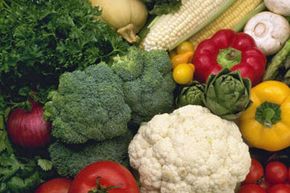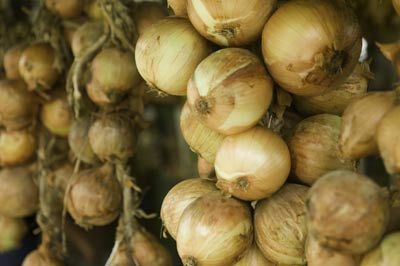In an age when "Eat your vegetables!" applies as much to adults as to children, it can seem almost too picky to worry about how those vegetables are cooked. Nutrients like vitamins, phytochemicals, minerals, antioxidants -- they're all in there, and they help fend off heart disease, stroke, diabetes and cancer and generally improve health and vitality. Does it really matter if your carrots are boiled, steamed or roasted?
Actually, it does. But that's the only simple part of the equation. There are numerous factors that affect whether cooking a vegetable decreases its nutritional value, and if it does, to what extent.
Advertisement
First, why would cooking vegetables make them less healthy? Here's a breakdown of the primary factors:
How much water you're cooking with. Water-soluble vitamins like B and C can leach out of the vegetables and into the cooking water. For this reason, cooking methods that use little or no water are the best ones. Boiling (unless you're making a stew and so will be consuming the vitamin-filled water) is not a great choice. Microwaving and flash-steaming score high.
Fat-soluble vitamins, such as A, D, E, K and carotenoids, are less affected by this factor.
How much heat you're cooking with. Heat has been proven to degrade nutrients. Of course, it's tough to avoid heat when cooking. To retain as much of the good stuff as possible, simply limit the amount of time the vegetables are exposed to heat. Which brings us to …
How long you're cooking them. The longer you cook the vegetables, the more they'll be affected by the nutrition-detracting qualities of heat and water. Something like oven-roasted scores high on the zero-water front but low on the cooking-time front, making it something of a neutral.
While you're typically looking at a slight decrease in nutrition with heat and water, for some vegetables, cooking can actually make them healthier. This is mostly because certain vegetables, including carrots, spinach, and broccoli, have very thick cell walls that the human body is not terribly good at breaking down. The nutrients are inside those cells. Cooking helps deteriorate the cell walls so your body can absorb more of the vegetable's nutrients.
So, how can you cook your vegetables to make the most of their nutritional potential? It varies widely by vegetable type, but the simple answer is: Quickly steam or microwave using as little water as possible. It's tough to go wrong with these methods, since the vegetables are cooking for the least amount of time and primarily in their own juices.
Still, there's an even simpler answer than that: Just eat your vegetables. Roast them, steam them, boil them, dip them in light ranch, whatever. If you're eating the recommended five to 13 servings per day (depending on calorie intake), you're doing just fine.
For more information on vegetables, cooking and health, look over the links on the next page.
Advertisement


